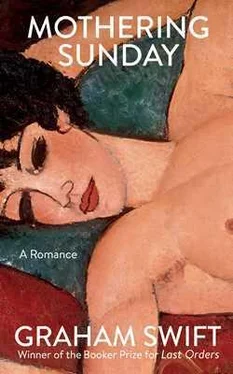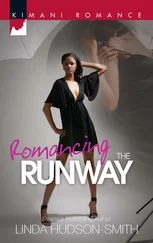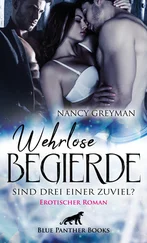Or rather it was called Youth, a Narrative; and Two Other Stories , a clumsy, unexciting mish-mash of a title. It was the only book by Joseph Conrad in the Beechwood library, and the narrative called Youth was the first thing in it and a good place anyway to start, since, as she would come to know, it was loosely based on Conrad’s own early experiences and on his first encounter (she would come to know that he wrote about it often) with a thing — a vision, a promise, a fact, an illusion — called ‘the East’.
It was anyway what, on that Mothering Sunday, she’d only just begun, and if her day had gone differently, if the telephone hadn’t rung, she might quite easily have finished it in some sunny corner of Berkshire or even in the Beechwood garden. She might even have got on to the Other Stories . One of them was called ‘Heart of Darkness’ and as it turned out (her Mothering Sunday having turned out as it did) it was a long time before she got round to that story, even though she knew she had discovered in Joseph Conrad someone important. It was the forbidding title perhaps.
She knew that Conrad was different from anything else she had read, but she could sense that there were things she might not be ready for. It was a little like reading Treasure Island and Kidnapped but not wanting yet to read Dr Jekyll and Mr Hyde .
She quite liked the word ‘narrative’, it was a sober, dependable-sounding word, but she didn’t see why the one thing should be called a narrative and the other things just stories. The word she most liked in those days was ‘tale’—and she was glad to find out that Conrad often preferred it too. There was something more enticing about calling something a tale rather than a story, but this had to do, perhaps, with the suggestion that it might not be wholly truthful, it might have a larger element of invention.
About all these words — tale, story, even narrative — there was a sort of question, always hovering in the background, of truth, and it might be hard to say how much truth went with each. There was also the word ‘fiction’—one day this would be the very thing she dealt in — which could seem almost totally dismissive of truth. A complete fiction! Yet something that was clearly and completely fiction could also contain — this was the nub and the mystery of the matter — truth. When she had read all three of them, she felt she could say Dr Jekyll and Mr Hyde was more truthful than Treasure Island or Kidnapped . Though some people might say it was the weirdest and certainly the most frightening of the lot.
‘Telling tales’: it could have the sense of concocting downright lies. Like ‘spinning yarns’. It seemed in fact that ‘yarn’ might be the best word for those adventure books she’d been first drawn to in the library at Beechwood, and to have questioned whether those books were truthful would have been pointless. They were yarns. In the word yarn itself there was a salty tang of men and the sea. And so many of those ‘boys’ books’ she read had involved, one way or another, going to sea — a voyage, an unknown land — as if that was the essence of adventure and what every boy wanted to do. And here was Joseph Conrad who seemed to have been just one of those boys.
And she liked the word ‘youth’. Or rather she was challenged by it, because it wasn’t in any obvious way like the title of a tale, story or narrative — or adventure. It seemed more like just an idea. Yet when she had first flipped through the pages of Youth in the Beechwood library it had seemed to be full of all that seafaring, yarny stuff she was already familiar with. Perhaps it was what one of the Niven boys, or by then young men, had thought too, though it was obvious he hadn’t got very far with the book, if he’d read it at all. Unlike other books in the revolving bookcase, it still looked clean and new. It even bore an inscription, in dark-blue ink, ‘J. Niven, Oct. 1915,’ that looked fresh enough to have been written yesterday. And maybe that was another reason why she picked it out.
Conrad, she soon felt, might be generally called a ‘challenging author’. ‘Heart of Darkness’. . Maybe J. Niven had thought this too. ‘Challenging author’ was not yet part of her writer-judging vocabulary and certainly not a phrase she could imagine one day being applied to herself. She would take it, when it was, as a complimentary phrase, but of course there were people who used it adversely. It was another way of saying ‘off-putting’. Well that was their bloody problem.
‘Conrad,’ she would say, when answering another of those repeated and bothersome questions. ‘Oh Conrad — he was the one.’ As if she were talking about someone she had met. Which in a sense she had.
‘Oh Conrad, I used to love all that seafaring stuff.’
‘But a man’s author, don’t you think?’
‘And your point is. .?’
The other reason why she liked the word youth was of course that it was what she had — then. She was ‘a youth’. Although there was a way in which ‘youth’, like ‘yarn’, had a strongly masculine bias to it. A man could be a ‘youth’, but a woman? But then everything had a masculine bias in 1924.
There was in any case a question — and the word youth seemed to have a rubbery quality to it to accommodate this — about where youth began and where it turned into something else. But, surely, still at twenty-two. In 1924 even the century was still in its youth. . Though, in fact, that wasn’t the case at all. Youth — great swathes of it — was just what the century had lost.
And yes, of course, by 1924 Conrad was arguably outmoded, already behind the times. Sailing ships? The exotic East? Didn’t he know what had happened to the world?
But he was truly the one. On the night of Mothering Sunday 1924, when, for good reasons, she was utterly unable to sleep or rest, she picked up again Joseph Conrad’s Youth . What else could she do? Cry? And cry again? In her little plank of a bed. People read books, didn’t they, to get away from themselves, to escape the troubles of their lives?
And it was and it wasn’t an adventure story. It was different, it had something special. It was about five crusty old men sitting round a table — yarning — who had done different things with their lives, but had all once been at sea, in their youth. She could see the men at the table, see their lined faces. One of them was called Marlow and it was he who told his story. It wasn’t really an adventure story at all. It was about a dumpy old ship that was always having bad luck, never getting far from murky home waters, but which one day, at the end of the story, which was also a sort of beginning, finally makes it to — the East.
When she had finished Youth and Other Stories , even managing to read ‘Heart of Darkness’—which was indeed challenging and truly like nothing else she had read — she knew she had to get more Conrad, and so she’d written to a bookshop in Reading which sent books by post. She had the half-crown still that Mr Niven had given her, not to mention other half-crowns put by. She could buy a postal order in the village. And dealing with a bookshop in this enterprising way perhaps even made her think: A bookshop, a bookshop. .
She bought a book called Lord Jim , which was not unlike Youth , but much longer — and challenging. It was called a ‘tale’. It involved that man Marlow again, and it was tempting to think that Marlow was really Conrad in disguise. Then she bought a book called The Secret Agent , which was quite different, since it wasn’t set in the East or to do with ships, but set in the grubby streets of London, though it still had that feeling of entering unknown and possibly dangerous territory which, if she’d had the word, she might have called ‘Conradian’.
Читать дальше












